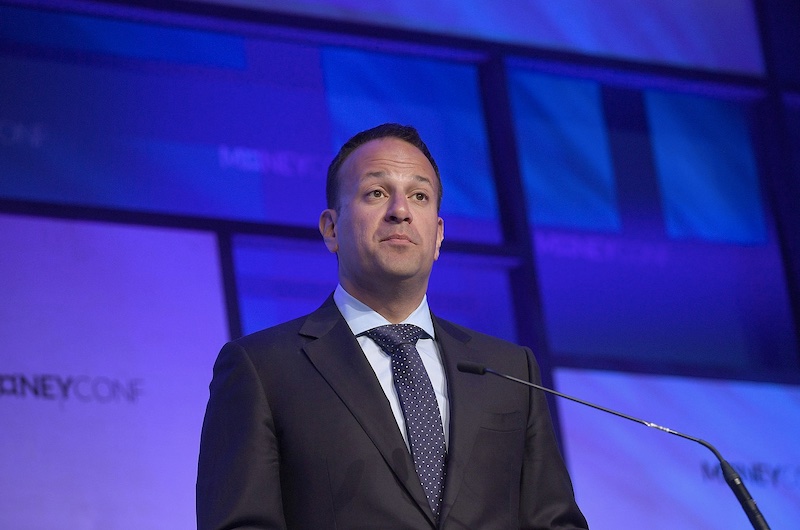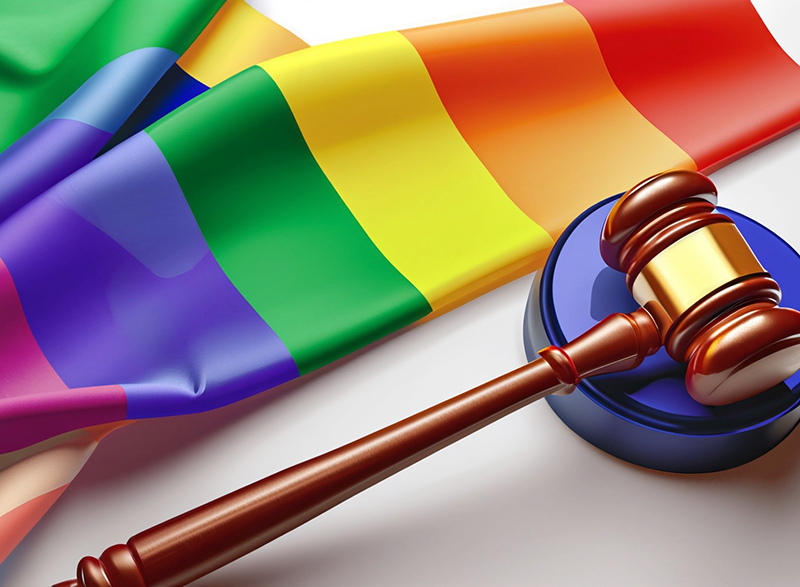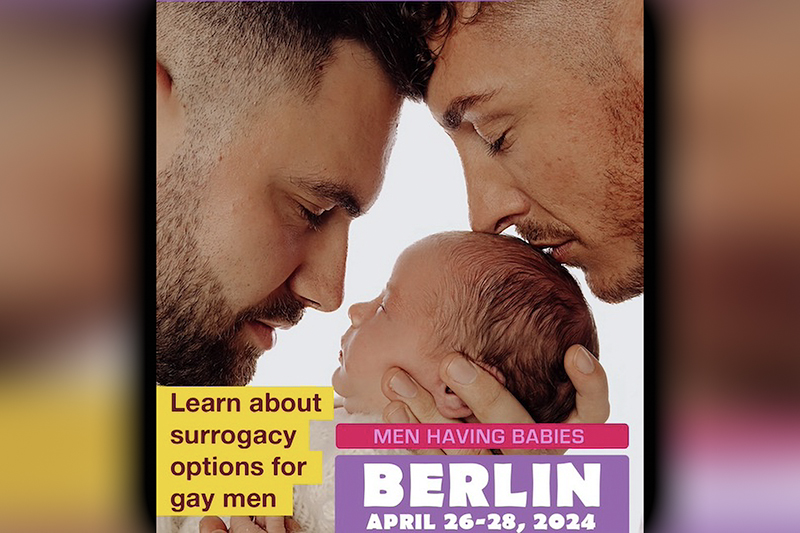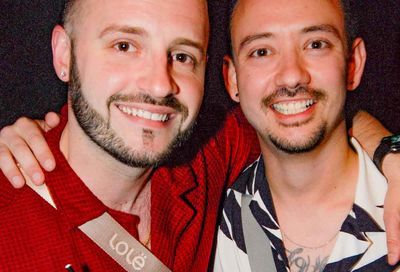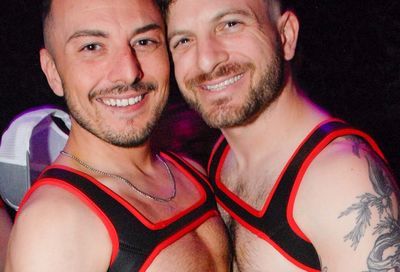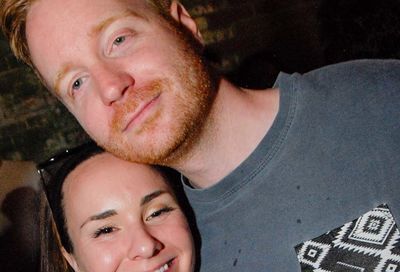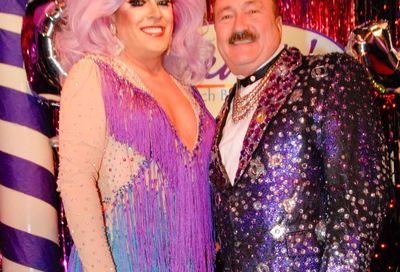UN chastises Finland for rejecting asylum request from lesbian couple’s child fleeing Russia
Finland claimed bullying, threats, and physical violence against child and his family did not amount to persecution.
By John Riley on February 18, 2021 @JRileyMW

A United Nations committee has chastised Finland for rejecting an asylum application from a child of a lesbian couple who was subjected to harassment, bullying, and even physical violence in his native Russia.
The child in question, known as “A.B.,” now 11 years old, fled from Russia to Finland in 2015 after the family faced threats and he began to be bullied at school. At the time, Russia had recently adopted legislation preventing the promotion of “non-traditional sexual relationships” — meaning any statement that casts LGBTQ status in a positive or neutral light — as part of its “anti-propaganda” law.
Although his mothers attempted to conceal the nature of their relationship, they were unintentionally outed when A.B. talked about his family in kindergarten. School staff began to treat A.B. rudely and aggressively, often causing him to cry and making him anxious to attend school.
When he was moved to another class, the classroom staff criticized his mothers, yelled at him, hit him, and gave him food to eat to which he was allergic. The staff also stood by while other children began bullying, hitting, and taunting A.B., and other parents attempted to prevent their children from interacting with or befriending him. As a result of the mistreatment, A.B. experienced heightened anxiety and began expressing thoughts of suicidal ideation.
The family later moved to Finland, and filed requests for asylum and for a humanitarian residence permit based on the persecution their family had faced in Russia. While their application was being processed, the family lived in Finland for two-and-a-half years, A.B. began learning Finnish and making friends, and his mothers were able to interact openly with other same-sex parent families. His teacher noted that he became a much happier child as a result of not being mistreated or having to conceal his family status.
But Finland ultimately rejected the family’s request for asylum, claiming that the threats, bullying, and discrimination they had faced did not rise to the level of persecution needed to qualify for asylum. As a result, the family was forced to return to Russia.
In response to a complaint filed against Finland, the U.N.’s Committee on the Rights of the Child found that Finland “failed to adequately take the best interests of the child as a primary consideration when assessing the author’s asylum request based on his mothers’ sexual orientation, and to protect him against a real risk of irreparable harm in case of return to the Russian Federation.”
The 18-member body of human rights experts also found Finland in violation of articles 3, 19, and 22 of the Convention on the Rights of the Child, and opined that Finland is “under an obligation to provide an effective reparation” to A.B. and his family, including compensating them for the costs incurred in the course of resettling in Russia.
See also: Anti-gay Russian group inspired by “Saw” threatens to hunt LGBTQ people in Europe
The decision by the committee against Finland is the first asylum-related case involving a child who faces risks to his personal and emotional well-being as a result of discrimination stemming from his mothers’ sexual orientation. It also marks the first time that the committee has made a decision on sexual orientation, and the first case dealing with the rights that children of same-sex couples are entitled to in countries that have ratified the UN Convention on the Rights of the Child, according to LGBTQ advocacy group ILGA World.
The committee’s decision was informed by a third-party intervention submitted by ILGA World, its European chapter, the International Commission of Jurists, Child Rights International Network, and Network of European LGBTIQ* Families Associations. In their brief to the court, the organizations argued that any decision regarding the child’s well-being should have taken what was in his best interests into consideration, and that those interests should be given high priority when making a final decision about his application for asylum.
The coalition of LGBTQ and human rights organizations also noted that sexual orientation constitutes a fundamental aspect of an individual’s identity and that LGBTQ people are entitled to freedom of expression and association as much as anyone else. The mere fact that an LGBTQ person may conceal their identity, or has done so in the past, is not a valid reason for denying refugee status.
See also: Russia threatens to arrest gay men fathering children through surrogacy
Moreover, the advocates argued, asylum seekers be reticent to openly flaunt their LGBTQ identity, on the grounds that, if their application is rejected, being out upon returning to their country of origin may put them at further risk of persecution by both state and non-state actors. The same principle should also apply to children of same-sex couples who are forced to hide their family background in order to avoid disparate treatment, bullying, psychological harm, or even the threat of being taken away from their parents.
“This is an important decision, setting out necessary standards for the protection of children in LGBTI families who are at heightened risk of discrimination, especially in countries like Russia, where LGBTI people face stigmatization and hostilities in their everyday lives,” Arpi Avetisyna, the head of litigation at ILGA-Europe, said in a statement. “States must always ensure that the best interests of the child are effectively and systematically taken into account in the context of asylum proceedings, and that they are not discriminated based on their parents’ sexual orientation.”
Kseniya Kirichenko, the program coordinator at ILGA World, expressed hope that the body’s decision might lead to a reversal of fortune for A.B. and his family.
“In the past, we have seen that international decisions on lesbian, gay and bisexual asylum seekers actually led to giving the applicants residency in the respondent States,” Kirichenko said in a statement. “We hope that Finland will also ensure that this family will be able to come back and to finally have a happy and safe life.”
Read more:
Utah school district suspends reading program over book about transgender boy
Gay lawmaker receives “torrent” of homophobic abuse after sharing photo with boyfriend
Kansas school bans student from bus for saying she’s lesbian
Ireland’s Gay Prime Minister, Leo Varadkar, Resigns
The country's youngest and first openly gay prime minister steps down ahead of expected political losses in upcoming elections.
By John Riley on March 20, 2024 @JRileyMW
Leo Varadkar, Ireland's youngest, first openly gay, and first multiracial prime minister, announced on March 20 that he is stepping down from office.
Varadkar resigned as leader of the Fine Gael political party and will resign as prime minister -- or taoiseach -- once a successor is named.
Standing on the steps of the Government Buildings in Dublin, the 45-year-old said he was stepping down for "personal and political" reasons, "but mainly political," reported The Guardian.
"I believe this government can be re-elected," Varadkar said. "I believe a new taoiseach will be better placed than me to achieve that -- to renew and strengthen the top team, to refocus our message and policies, and to drive implementation. After seven years in office, I am no longer the best person for that job."
Senate Confirms Out Lesbian to 4th Circuit Court of Appeals
With Nicole Berner's confirmation, President Biden ties Obama’s record for appointing the most LGBTQ federal judges in history.
By John Riley on March 21, 2024 @JRileyMW
The U.S. Senate has confirmed Nicole Berner to the 4th U.S. Circuit Court of Appeals by a 50-47 vote, with all Republicans and Democratic Sen. Joe Manchin (W.V.) voting against her nomination.
Berner’s confirmation makes her the first out lesbian confirmed to the 4th Circuit -- which covers Maryland, Virginia, West Virginia, North Carolina, and South Carolina -- and only the sixth LGBTQ judge confirmed to any appeals court in the country.
It also makes her the eleventh LGBTQ federal judge nominated by President Joe Biden, who ties a record with President Obama for appointing the most LGBTQ federal judges in history.
Instagram Flagged a Picture of Gay Dads with Baby as “Graphic” Content
A Meta spokesperson confirmed that the post had been erroneously tagged and that the image had been restored.
By John Riley on March 13, 2024 @JRileyMW
Instagram censored an image of two real-life husbands with their newborn as "sensitive" and "graphic" content.
The image was eventually restored.
Men Having Babies, a nonprofit that assists gay men in building families by pursuing surrogacy options, posted the image to promote an educational conference in Berlin in April.
But soon after the picture was posted, Instagram censored it with a black message screen that forced users to click to view the image.
"Sensitive Content," the message screen read. "This photo may contain graphic or violent content... images that some people might find upsetting."
Support Metro Weekly’s Journalism
These are challenging times for news organizations. And yet it’s crucial we stay active and provide vital resources and information to both our local readers and the world. So won’t you please take a moment and consider supporting Metro Weekly with a membership? For as little as $5 a month, you can help ensure Metro Weekly magazine and MetroWeekly.com remain free, viable resources as we provide the best, most diverse, culturally-resonant LGBTQ coverage in both the D.C. region and around the world. Memberships come with exclusive perks and discounts, your own personal digital delivery of each week’s magazine (and an archive), access to our Member's Lounge when it launches this fall, and exclusive members-only items like Metro Weekly Membership Mugs and Tote Bags! Check out all our membership levels here and please join us today!
The Magazine
-
Most Popular
 California Mayor Recalled After Coming Out as Transgender
California Mayor Recalled After Coming Out as Transgender  LGBTQ Teen Sues School Over Suspension For Rap Lyrics
LGBTQ Teen Sues School Over Suspension For Rap Lyrics  Ralph Fiennes and Indira Varma Soar in STC's 'Macbeth' (Review)
Ralph Fiennes and Indira Varma Soar in STC's 'Macbeth' (Review)  Gay Furries Hack Right-Wing Network Real America's Voice
Gay Furries Hack Right-Wing Network Real America's Voice  Lawsuit Against New York AG Letitia James Dismissed
Lawsuit Against New York AG Letitia James Dismissed  The Powerful Story Behind David Archuleta's ‘Hell Together’
The Powerful Story Behind David Archuleta's ‘Hell Together’  Brandy Clark is Happily Settling into Americana
Brandy Clark is Happily Settling into Americana  Vera Drew is Not Joking Around with 'The People's Joker'
Vera Drew is Not Joking Around with 'The People's Joker'  For Don Mancini, Chucky is So Much More Than a Killer Toy
For Don Mancini, Chucky is So Much More Than a Killer Toy  Win Tickets to "Webster's Bitch" at The Keegan Theatre
Win Tickets to "Webster's Bitch" at The Keegan Theatre
 For Don Mancini, Chucky is So Much More Than a Killer Toy
For Don Mancini, Chucky is So Much More Than a Killer Toy  LGBTQ Teen Sues School Over Suspension For Rap Lyrics
LGBTQ Teen Sues School Over Suspension For Rap Lyrics  California Mayor Recalled After Coming Out as Transgender
California Mayor Recalled After Coming Out as Transgender  Lawsuit Against New York AG Letitia James Dismissed
Lawsuit Against New York AG Letitia James Dismissed  GLOW's Secret Garden Is An "Escape...With A Chill Vibe"
GLOW's Secret Garden Is An "Escape...With A Chill Vibe"  Ralph Fiennes and Indira Varma Soar in STC's 'Macbeth' (Review)
Ralph Fiennes and Indira Varma Soar in STC's 'Macbeth' (Review)  Win Tickets to "Webster's Bitch" at The Keegan Theatre
Win Tickets to "Webster's Bitch" at The Keegan Theatre  Vera Drew is Not Joking Around with 'The People's Joker'
Vera Drew is Not Joking Around with 'The People's Joker'  Gay Furries Hack Right-Wing Network Real America's Voice
Gay Furries Hack Right-Wing Network Real America's Voice  'Unknown Soldier' Makes for a Soaring Romance (Review)
'Unknown Soldier' Makes for a Soaring Romance (Review)
Scene
Metro Weekly
Washington's LGBTQ Magazine
P.O. Box 11559
Washington, DC 20008 (202) 638-6830
About Us pageFollow Us:
· Facebook
· Twitter
· Flipboard
· YouTube
· Instagram
· RSS News | RSS SceneArchives
- "We use cookies and other data collection technologies to provide the best experience for our customers. You may request that your data not be shared with third parties here: "Do Not Sell My Data
Copyright ©2024 Jansi LLC.




